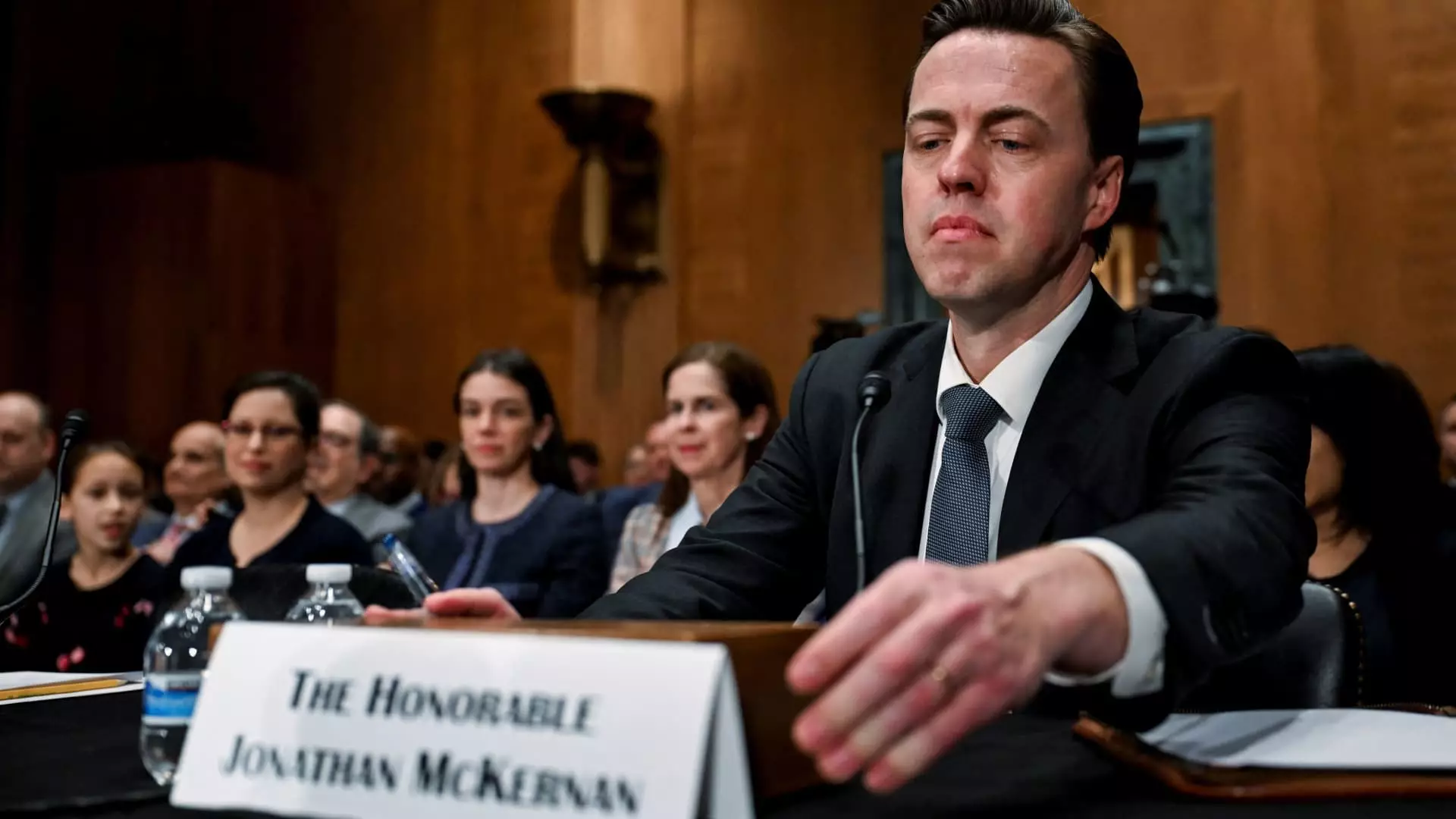In a recent Senate hearing, Jonathan McKernan, President Trump’s nominee to head the Consumer Financial Protection Bureau (CFPB), faced tough questions from Democratic senators concerning his commitment to enforce consumer protection laws. With a background that includes service on the board of the Federal Deposit Insurance Corporation (FDIC), McKernan’s legal expertise was put under the microscope, especially by high-profile critics such as Senator Elizabeth Warren, who is a staunch advocate for consumer rights.
The CFPB was created in the aftermath of the 2008 financial crisis with the objective of safeguarding consumers in financial markets. This federal agency is responsible for regulating the practices of banks and financial services providers, ensuring that consumers can access fair treatment and protection from abusive practices. McKernan, during the hearing, stressed the importance of a regulatory framework that prioritizes everyday Americans, indicating his understanding of the bureau’s core mission. However, his views on the agency’s direction under the leadership of Rohit Chopra raised eyebrows, as he described the previous administration as having operated in a “politicized manner.”
McKernan’s assertion about the CFPB suffering from a “crisis of legitimacy” is particularly noteworthy. As he noted in his remarks, there have been significant shifts in operational focus that have raised doubts about the agency’s capabilities to fulfill its mission effectively. Changes in leadership and policy direction have led to a perception that the bureau may be moving away from its foundational goals. McKernan’s statements hint at an upcoming struggle to regain public trust and reaffirm the agency’s role as a protector of consumer rights.
The CFPB has been undergoing profound transformations since Russell Vought took over as acting director. Reports of significant layoffs and the suspension of critical projects are alarming. With the agency shuttering its Washington headquarters and reducing its workforce substantially, a narrative has emerged suggesting potential dismantlement. The dismissal of at least four enforcement lawsuits against major institutions like Capital One only underscores the urgent need for clarity regarding the CFPB’s future operational integrity.
In a stark comment that reflected the gravity of the situation, Senator Warren pointedly conveyed her skepticism about McKernan’s prospects for effectively managing the bureau amidst ongoing threats to its existence. Her metaphor comparing him to “the No. 1 horse at the glue factory” effectively painted the bleak picture for what McKernan might face if he were confirmed.
During the hearing, Warren questioned McKernan closely about his willingness to uphold statutory requirements that the CFPB must meet, including maintaining a comprehensive website for consumer complaints and ensuring advocacy for vulnerable populations such as military veterans and senior citizens. McKernan assured the committee that he would abide by legal obligations, noting, “Yes, I’ll follow the law.” Such commitments are crucial, though they stand in stark contrast to the current administration’s perceived intent to dismantle the bureau’s core functions.
If confirmed, McKernan indicated plans to “right-size” and “refocus” the bureau. However, the effectiveness of such strategies remains debatable given the current climate. The sentiments expressed by Senator Jack Reed regarding the lack of support from both the president and the Office of Management and Budget suggest that McKernan could be positioned precariously within the agency.
In addressing the future of consumer protection under McKernan’s leadership, it becomes apparent that he must contend with not only skepticism from those who exact consumer rights but also institutional pressures seeking to redefine the agency’s purpose. The path forward will require dedicated advocacy for consumer welfare, coupled with a commitment to transparency and accountability that will reassure the public about the agency’s commitment to its foundational goals.
As discussions continue regarding the future of the CFPB and its leadership, McKernan’s nomination serves as a pivotal moment. His responsiveness to questions about the bureau’s responsibilities will play a crucial role in determining whether the agency can adapt and thrive in a complex political and economic landscape. The commitment to uphold consumer protections within financial markets must remain a priority, emphasizing that strong, credible advocacy is essential for the continued safeguarding of American consumers.

Leave a Reply